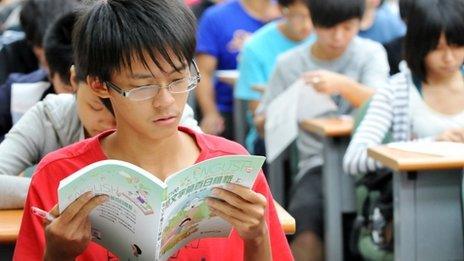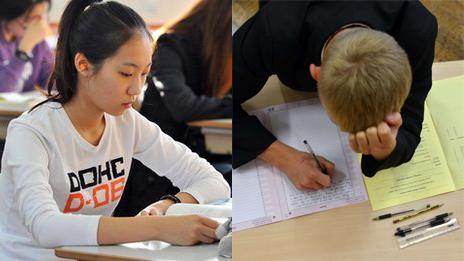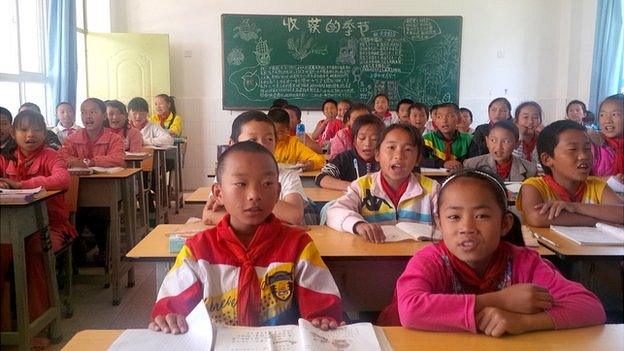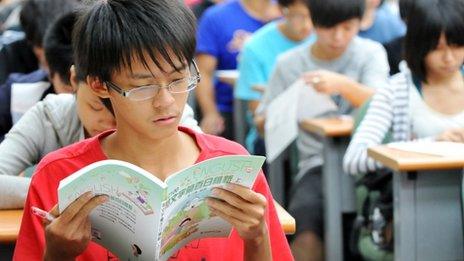Pisa tests to include many more Chinese pupils
- Published

Guangdong province, with a population of more than 100 million, is joining the next round of Pisa tests
There will be a much wider sample of Chinese pupils taking part in the next round of the international Pisa tests.
Shanghai took part in the most recent tests and had the highest results.
But there were claims that the city was not representative of schools in other parts of China.
The Organisation for Economic Co-operation and Development (OECD) which runs the tests has announced that Beijing, Jiangsu and Guangdong will take part, alongside Shanghai.
The Pisa tests, taken every three years by 15-year-olds, have become one of the most influential international benchmarks for education standards.
Earlier this year, England's exam regulator announced that the Pisa tests would be used as a benchmark for maintaining standards in GCSEs.
The Department for Education in England has also said it will recruit 60 maths teachers from Shanghai and bring them over to provide master classes in teaching maths in England.
City states
The most recent results showed that Asian school systems were at the top of the rankings in reading, maths and science.
But Pisa tests include regional education systems as well as results for entire countries.
Shanghai was the single most successful education system, but there were complaints that the standards in an individual city should not be measured against the outcomes of a diverse national system, such as the United States or Germany.

Asian education systems were the highest performers in the most recent tests
The four education systems in the UK, England, Scotland, Wales and Northern Ireland, are entered separately, but there is also a combined UK ranking.
There is still no plan for a single Chinese entry in the global rankings, but the OECD says that a wider range of regions will participate.
Guangdong, China's most populated province with more than 100 million people, will take part in the 2015 tests.
Jiangsu, a densely-populated province on China's east coast, also joining the Pisa test process, has a population similar to that of Germany.
Beijing and Shanghai are also participating, with the four Chinese provinces having a population of more than 230 million.
The OECD's Andreas Schleicher, responsible for the tests, said: "Carrying out a Pisa assessment in a vast and diverse country like China is a formidable challenge."
The expansion of provinces taking part "marks an important stepping stone", he said.
"China's participation in Pisa 2015 will be conducted in full accordance with Pisa sampling procedures and standards of international comparability," said Mr Schleicher.
- Published3 December 2013

- Published14 October 2015

- Published12 February 2014

- Published12 March 2014
